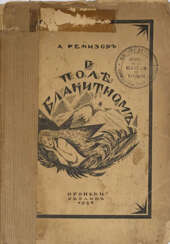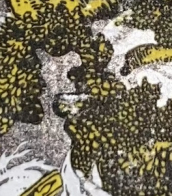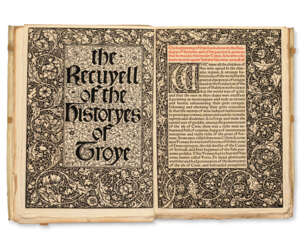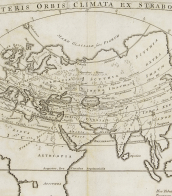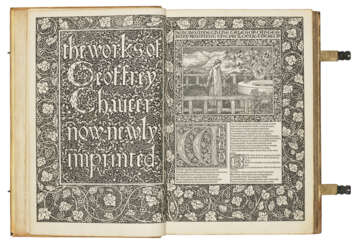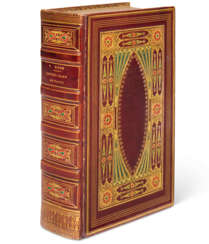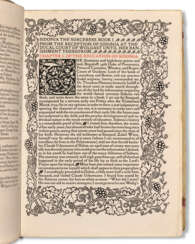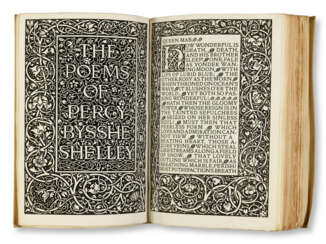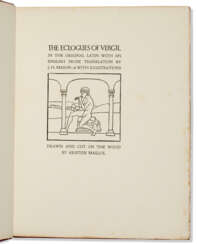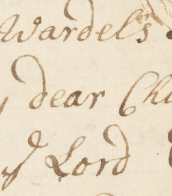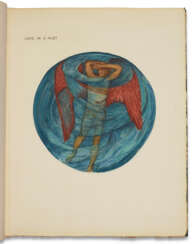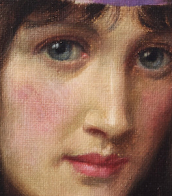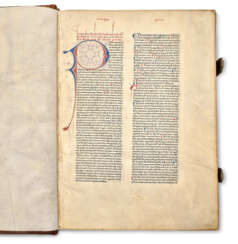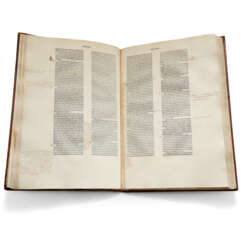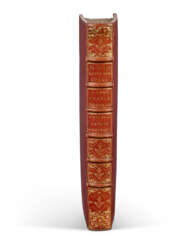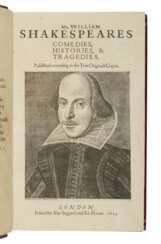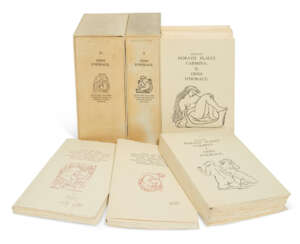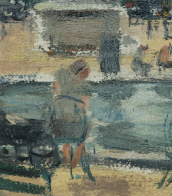печатная книга


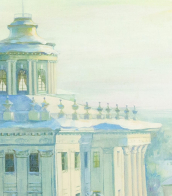

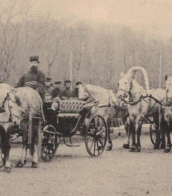
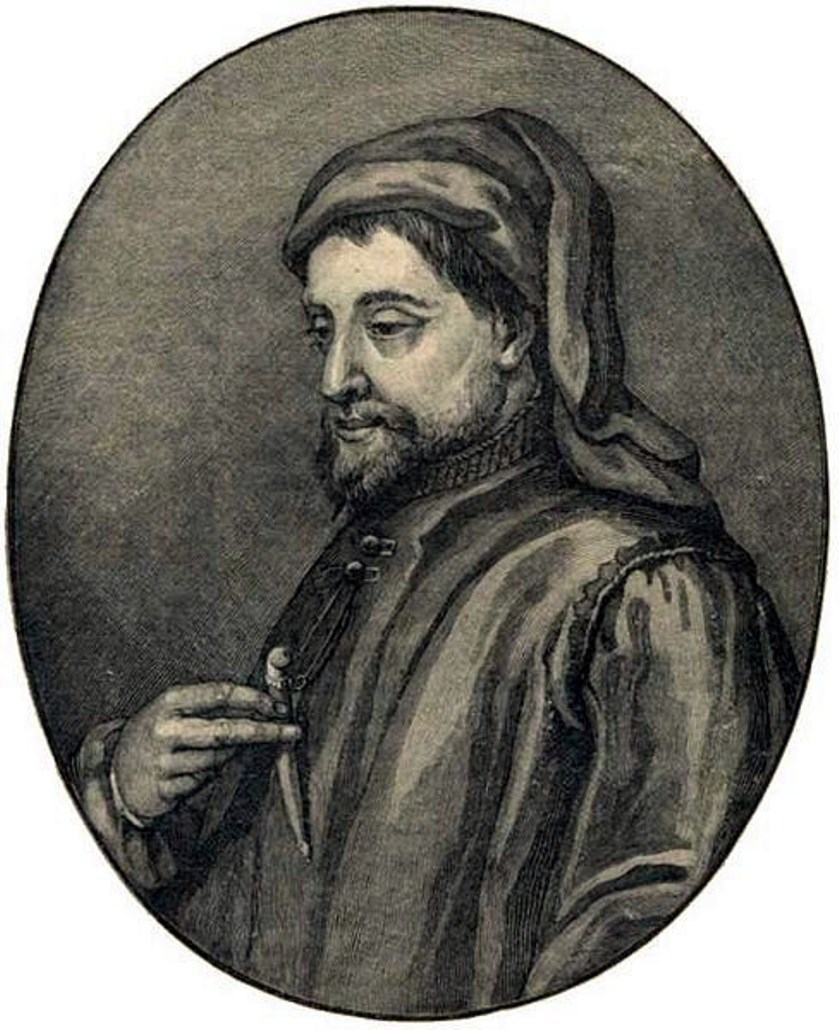
Geoffrey Chaucer was a medieval English poet and novelist, one of the founders of the literary English language.
Geoffrey Chaucer came from a wealthy family, in 1357 became a civil servant of Countess Elizabeth of Ulster and remained at the British court all his life. Later in his royal service, he traveled on diplomatic missions to France, Spain, and Italy. He made important contributions to the management of public affairs as a courtier, diplomat and civil servant. And very importantly, in these travels Chaucer was exposed to the works of Dante, Petrarch and Boccaccio, which later had a profound influence on his writing.
"The Canterbury Tales" became Geoffrey Chaucer's most famous and recognized work, although this voluminous work remained unfinished. He also wrote the popular science treatise "A Treatise on the Astrolabe", the historical poems "Troilus and Criseyde" and "Legends of Glorious Women", and many poems.
Geoffrey Chaucer is called the forerunner of the literature of the English Renaissance. He was the first to write works in his native language instead of Latin, for which he earned the title of "father of English poetry." Chaucer was buried in Westminster Abbey, and his grave became the first in the so-called "Poet's Corner", where Charles Dickens, Rudyard Kipling and Alfred Tennyson were later buried.

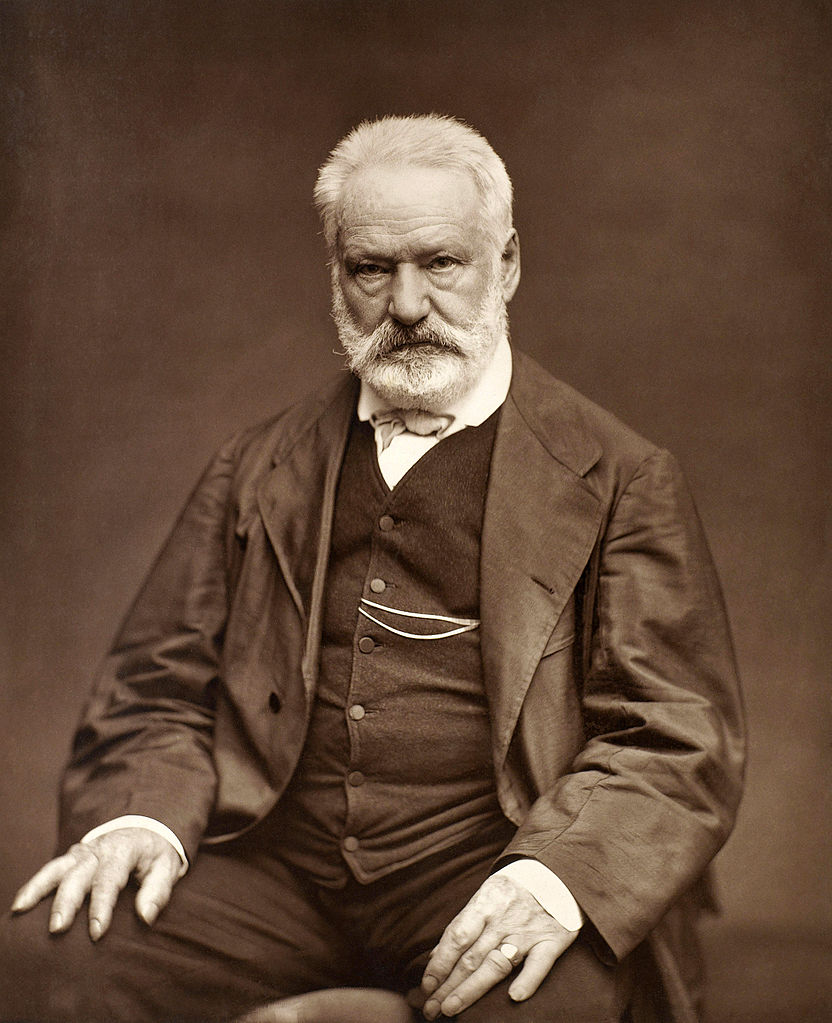
Victor Hugo was a French poet, novelist, dramatist, and politician, celebrated for his profound impact on art, culture, painting, and history. Born on February 26, 1802, in Besançon, France, Hugo emerged as a pivotal figure in the Romantic literary movement. His illustrious career spanned over six decades, during which he authored numerous works in various genres.
Victor Hugo's legacy is particularly notable for his novels "The Hunchback of Notre-Dame" (1831) and "Les Misérables" (1862), which have left an indelible mark on literature and culture. These works not only showcase his storytelling prowess but also reflect his deep engagement with the social issues of his time. His commitment to addressing societal concerns is further evidenced by his active political life and advocacy for causes like the abolition of capital punishment and slavery.
Beyond his literary and political contributions, Victor Hugo was also an accomplished artist, having produced over 4,000 drawings throughout his lifetime. His passion for the arts and dedication to social causes cemented his status as a national hero in France. When he passed away on May 22, 1885, his significance was underscored by a state funeral at the Panthéon in Paris, attended by over 2 million people, making it the largest in French history.
For collectors and experts in art and antiques, Victor Hugo's multifaceted legacy offers a rich tapestry of creativity and commitment to explore. His works not only provide profound literary enjoyment but also serve as a window into the cultural and historical milieu of 19th-century France.
To stay informed about new product sales and auction events related to Victor Hugo, sign up for updates. This subscription will ensure you're always in the loop regarding the latest developments related to this iconic figure's works and associated artifacts.


Victor Hugo was a French poet, novelist, dramatist, and politician, celebrated for his profound impact on art, culture, painting, and history. Born on February 26, 1802, in Besançon, France, Hugo emerged as a pivotal figure in the Romantic literary movement. His illustrious career spanned over six decades, during which he authored numerous works in various genres.
Victor Hugo's legacy is particularly notable for his novels "The Hunchback of Notre-Dame" (1831) and "Les Misérables" (1862), which have left an indelible mark on literature and culture. These works not only showcase his storytelling prowess but also reflect his deep engagement with the social issues of his time. His commitment to addressing societal concerns is further evidenced by his active political life and advocacy for causes like the abolition of capital punishment and slavery.
Beyond his literary and political contributions, Victor Hugo was also an accomplished artist, having produced over 4,000 drawings throughout his lifetime. His passion for the arts and dedication to social causes cemented his status as a national hero in France. When he passed away on May 22, 1885, his significance was underscored by a state funeral at the Panthéon in Paris, attended by over 2 million people, making it the largest in French history.
For collectors and experts in art and antiques, Victor Hugo's multifaceted legacy offers a rich tapestry of creativity and commitment to explore. His works not only provide profound literary enjoyment but also serve as a window into the cultural and historical milieu of 19th-century France.
To stay informed about new product sales and auction events related to Victor Hugo, sign up for updates. This subscription will ensure you're always in the loop regarding the latest developments related to this iconic figure's works and associated artifacts.

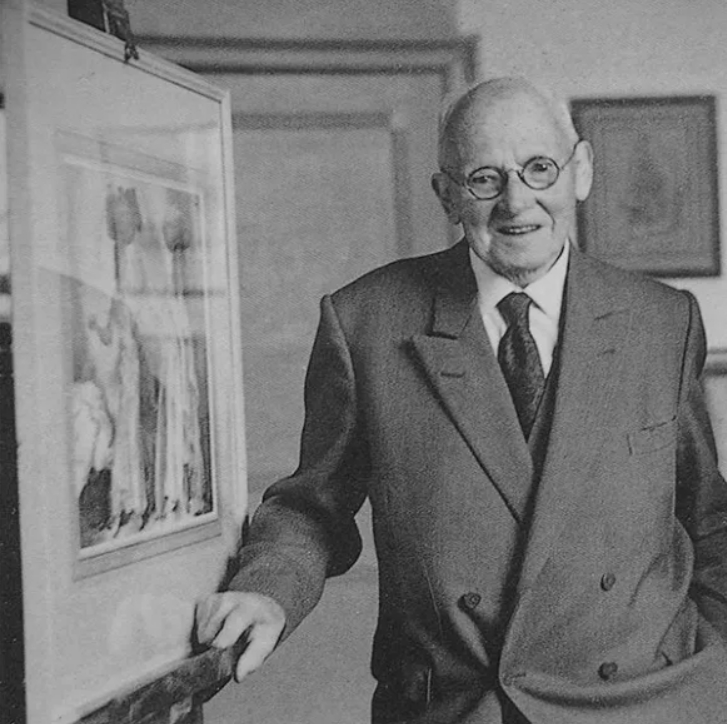
William Russell Flint was a Scottish artist and illustrator who was known especially for his watercolours of women. He also worked in oils, tempera, and printmaking.

Geoffrey Chaucer was a medieval English poet and novelist, one of the founders of the literary English language.
Geoffrey Chaucer came from a wealthy family, in 1357 became a civil servant of Countess Elizabeth of Ulster and remained at the British court all his life. Later in his royal service, he traveled on diplomatic missions to France, Spain, and Italy. He made important contributions to the management of public affairs as a courtier, diplomat and civil servant. And very importantly, in these travels Chaucer was exposed to the works of Dante, Petrarch and Boccaccio, which later had a profound influence on his writing.
"The Canterbury Tales" became Geoffrey Chaucer's most famous and recognized work, although this voluminous work remained unfinished. He also wrote the popular science treatise "A Treatise on the Astrolabe", the historical poems "Troilus and Criseyde" and "Legends of Glorious Women", and many poems.
Geoffrey Chaucer is called the forerunner of the literature of the English Renaissance. He was the first to write works in his native language instead of Latin, for which he earned the title of "father of English poetry." Chaucer was buried in Westminster Abbey, and his grave became the first in the so-called "Poet's Corner", where Charles Dickens, Rudyard Kipling and Alfred Tennyson were later buried.

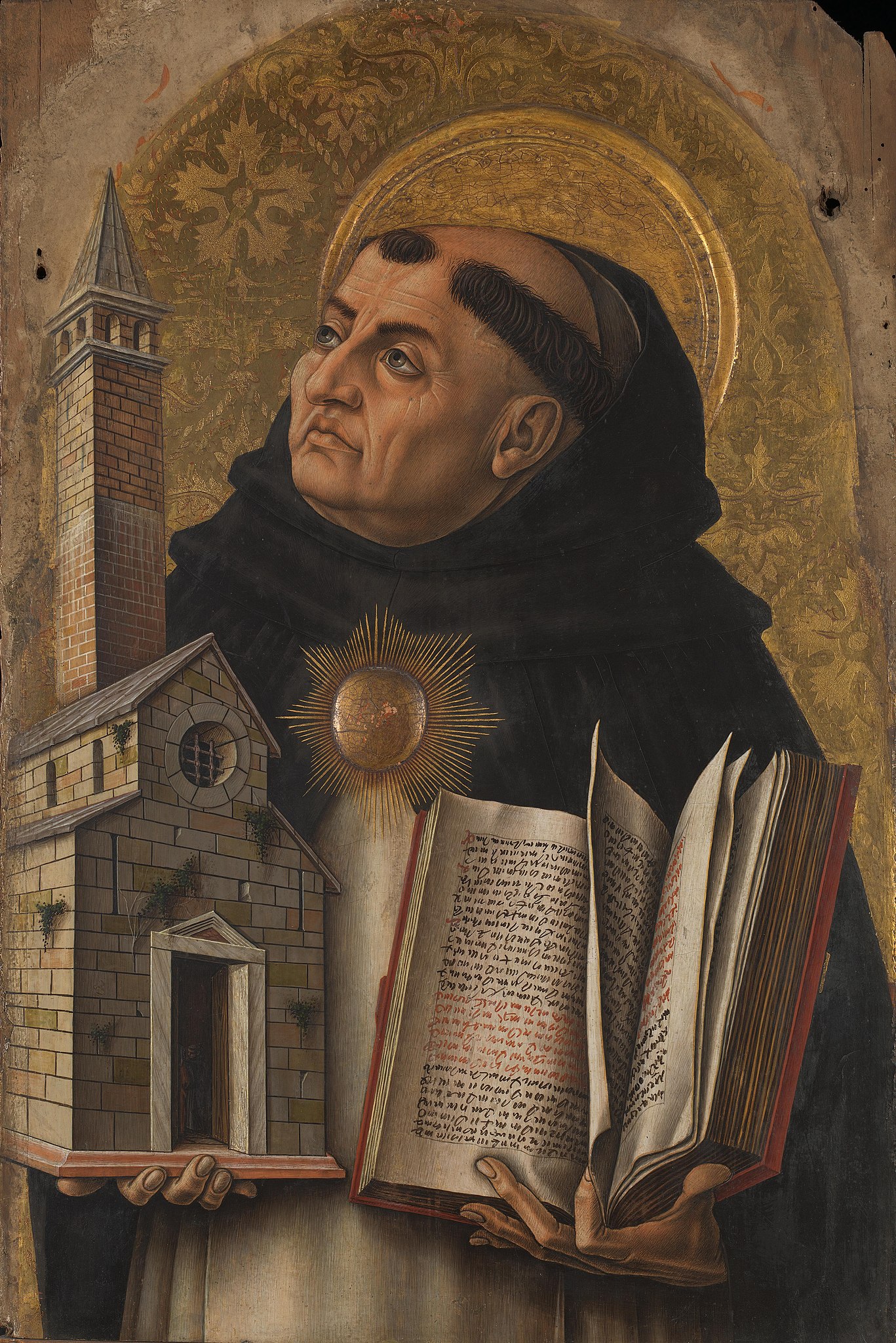
Thomas Aquinas (Italian: Tommaso d'Aquino, also called Aquinas, alias Doctor Angelicus) was an Italian poet and theologian, philosopher, and major medieval scholastic.
Thomas Aquinas is one of the most important theologians in the history of Western civilization, given the extent of his influence on the development of Roman Catholic theology since the fourteenth century. As a theologian, in his two masterpieces, Summa theologiae and Summa contra gentiles, he created the classical systematization of Latin theology, and as a poet, he wrote some of the most serious and beautiful Eucharistic hymns in the church liturgy. Thomas Aquinas is recognized by the Roman Catholic Church as the foremost Western philosopher and theologian and canonized as a saint.

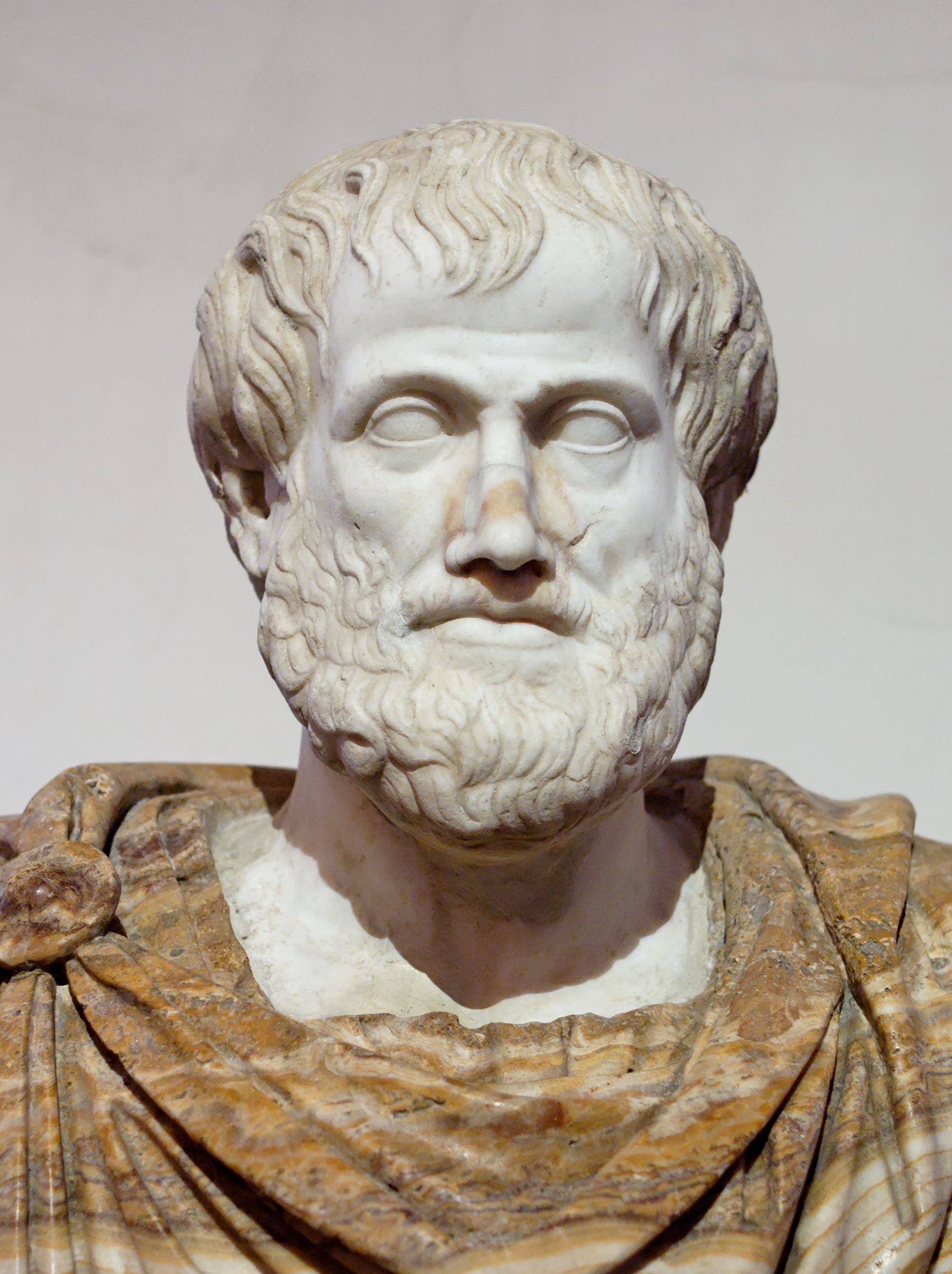
Aristotle (Greek: Ἀριστοτέλης) was an Ancient Greek philosopher and polymath, renowned for his profound impact on Western philosophy and science. Born in Stagira, Chalcidice, Aristotle's intellectual ventures spanned a multitude of subjects, including but not limited to physics, metaphysics, poetry, theater, music, logic, rhetoric, politics, government, ethics, biology, and zoology.
Educated in Plato's Academy in Athens, Aristotle distinguished himself as a scholar of vast knowledge and influence. His foundational works laid the groundwork for the development of modern science, while his teachings on logic and the syllogistic method continue to resonate in the realm of philosophy. As the tutor of Alexander the Great and the founder of the Lyceum in Athens, Aristotle's legacy extends beyond his prolific writings, with his teachings shaping medieval scholarship and influencing both Judeo-Islamic and Christian theologies.
Among Aristotle's notable works, his treatises such as "Nicomachean Ethics," "Politics," "Metaphysics," and "Poetics" have been studied for centuries. His concept of the "Golden Mean," advocating for a balanced and moderate approach to life, remains a cornerstone of ethical philosophy. His ideas on the "Prime Mover" and empirical evidence as a basis for understanding the world laid the foundation for scientific inquiry. Although only about a third of his original output has survived, Aristotle's contributions continue to be a subject of academic study and admiration.
For collectors and experts in art and antiques, the philosophical and scientific principles of Aristotle's works are not just historical artifacts but living ideas that continue to shape our understanding of the world and our place within it. His insights into the "good life" and the pursuit of happiness are as relevant today as they were in ancient Greece.
If you wish to stay informed about new product sales and auction events related to Aristotle, sign up for updates. This subscription is your gateway to the latest scholarly works, collections, and auctions connected to the great philosopher's legacy.


Aristotle (Greek: Ἀριστοτέλης) was an Ancient Greek philosopher and polymath, renowned for his profound impact on Western philosophy and science. Born in Stagira, Chalcidice, Aristotle's intellectual ventures spanned a multitude of subjects, including but not limited to physics, metaphysics, poetry, theater, music, logic, rhetoric, politics, government, ethics, biology, and zoology.
Educated in Plato's Academy in Athens, Aristotle distinguished himself as a scholar of vast knowledge and influence. His foundational works laid the groundwork for the development of modern science, while his teachings on logic and the syllogistic method continue to resonate in the realm of philosophy. As the tutor of Alexander the Great and the founder of the Lyceum in Athens, Aristotle's legacy extends beyond his prolific writings, with his teachings shaping medieval scholarship and influencing both Judeo-Islamic and Christian theologies.
Among Aristotle's notable works, his treatises such as "Nicomachean Ethics," "Politics," "Metaphysics," and "Poetics" have been studied for centuries. His concept of the "Golden Mean," advocating for a balanced and moderate approach to life, remains a cornerstone of ethical philosophy. His ideas on the "Prime Mover" and empirical evidence as a basis for understanding the world laid the foundation for scientific inquiry. Although only about a third of his original output has survived, Aristotle's contributions continue to be a subject of academic study and admiration.
For collectors and experts in art and antiques, the philosophical and scientific principles of Aristotle's works are not just historical artifacts but living ideas that continue to shape our understanding of the world and our place within it. His insights into the "good life" and the pursuit of happiness are as relevant today as they were in ancient Greece.
If you wish to stay informed about new product sales and auction events related to Aristotle, sign up for updates. This subscription is your gateway to the latest scholarly works, collections, and auctions connected to the great philosopher's legacy.


William Shakespeare was a British poet and playwright and writer.
William's father, John Shakespeare, was a merchant and official in Stratford. There are reports that he was a sailor for a time before joining a theater company in London. Beginning in the 1590s, Shakespeare began writing plays, and in 1593 he published a poem, Venus and Adonis, which became popular. He dedicated it to the Duke of Southampton, who was a philanthropist and patron of talent, and soon his business was booming.
From 1592 to 1600 Shakespeare wrote his dramas and romantic comedies "Richard III", "The Taming of the Shrew", "Romeo and Juliet", "A Midsummer Night's Dream" and "The Merchant of Venice", as well as the comedies "Much Ado About Nothing", "Twelfth Night" and the tragedy "Julius Caesar". The playwright's business was so successful that he even bought a large house in Stratford. In 1599, Shakespeare became one of the owners, playwright and actor of the new theater "Globe". In 1603 King James took Shakespeare's troupe under his direct patronage. In the mature period, the great playwright turned to tragedies, there were "Hamlet", "Othello", "King Lear", "Macbeth" and others.
Although in the 19th century researchers had some doubts about the authorship of many of these works, William Shakespeare is considered the greatest English playwright, one of the best playwrights in the world. His plays have been translated into all major languages and to this day form the basis of the world theatrical repertoire, most of them have been screened many times. According to the Guinness Book of Records, Shakespeare remains the world's best-selling playwright, and his plays and poems have sold more than 4 billion copies in the nearly 400 years since his death.
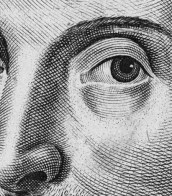
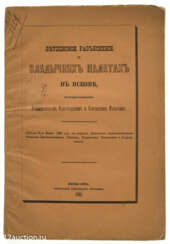

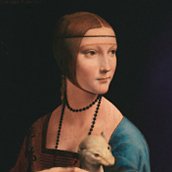
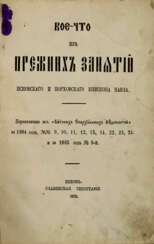

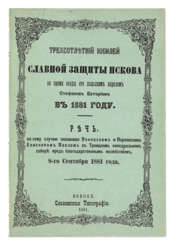

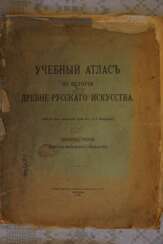

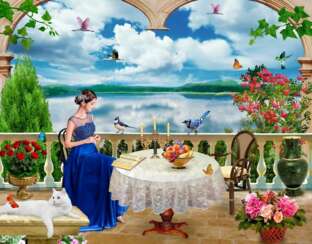



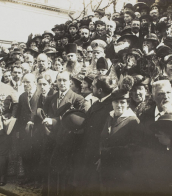
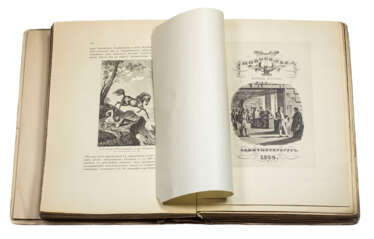

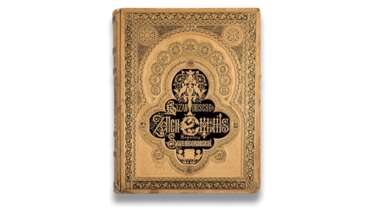

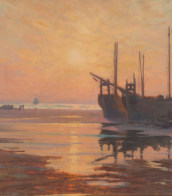
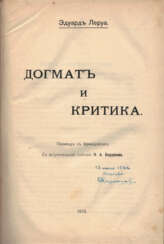

![Тареев, М.М. Искушения Господа нашего Иисуса Христа: Комментарий на Мф. IV, I—II; Мр. 1, 12, 13; Лук. IV, 1—13. — Новое [вновь обработ.] изд.](/assets/image/picture_1905651/8c6ac/ipn43xvfva8zyzq4qscsway5hqmfemicalfptii0xyzx8dxui6jac0vuf1xj9bx1639497058jpg__fix_374_244.jpeg)
![Тареев, М.М. Искушения Господа нашего Иисуса Христа: Комментарий на Мф. IV, I—II; Мр. 1, 12, 13; Лук. IV, 1—13. — Новое [вновь обработ.] изд.](https://veryimportantlot.com/assets/image/picture_1905651/8c6ac/ipn43xvfva8zyzq4qscsway5hqmfemicalfptii0xyzx8dxui6jac0vuf1xj9bx1639497058jpg__fix_374_244.jpeg)
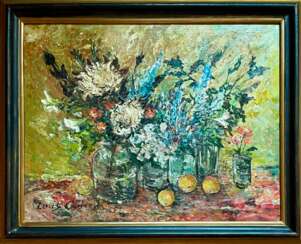

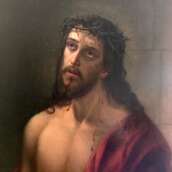
![Алтаев, Ал. [автограф] Памятные встречи: [Воспоминания о рус. художниках и артистах. 1870-1900 гг.] / Ал. Алтаев; [Предисл. Ю. Доброва].](/assets/image/picture_1793909/ea8cc/sl-p5oxu6i7dxahd7du24pdm48yvrbrwogdq-xqcjhcdqityrtuchurstpqgxtve1635933374jpg__fix_374_244.jpeg)
![Алтаев, Ал. [автограф] Памятные встречи: [Воспоминания о рус. художниках и артистах. 1870-1900 гг.] / Ал. Алтаев; [Предисл. Ю. Доброва].](https://veryimportantlot.com/assets/image/picture_1793909/ea8cc/sl-p5oxu6i7dxahd7du24pdm48yvrbrwogdq-xqcjhcdqityrtuchurstpqgxtve1635933374jpg__fix_374_244.jpeg)
